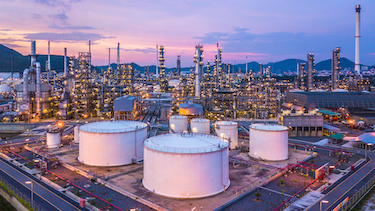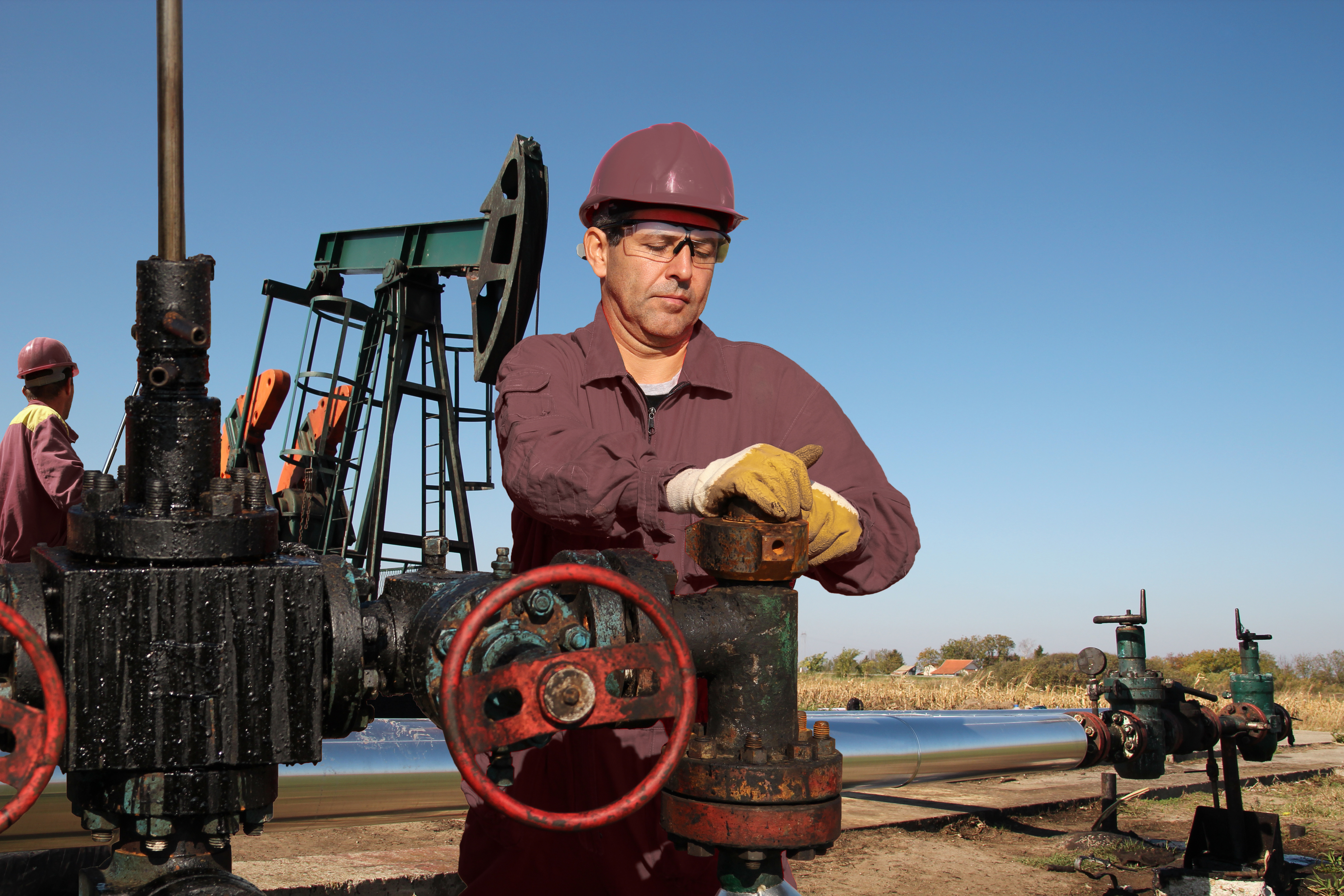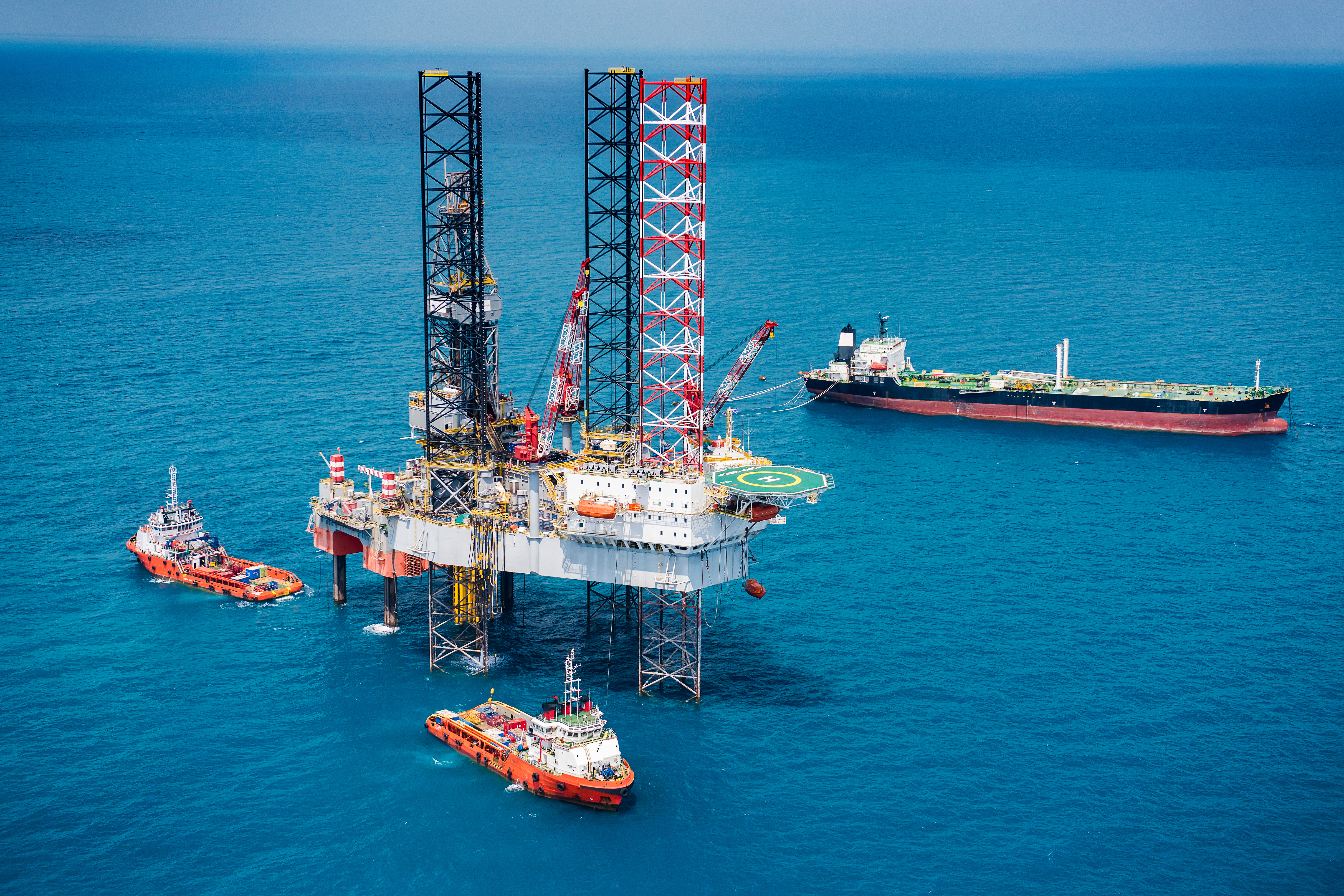Share this
Rugged Computers for Oil and Gas: Key Benefits and Use Cases
by Tony Oliva on Apr 24, 2023 2:14:06 PM

The oil and gas industry is known for its harsh and challenging environments, which can pose significant risks to the integrity and reliability of standard computing equipment. Rugged computers are essential in this industry to ensure that critical data and operations remain accessible and functional even in extreme conditions.
In this blog, you'll learn about why rugged computers are critical to a variety of oil and gas operations, various use cases, and how Trenton's ruggedized edge computing solutions come into play for enhanced performance at the edge.
Why are rugged computers so critical to the oil and gas industry?
Rugged computers are specially designed to withstand unpredictable and harsh environments and are essential to the oil and gas industry. Here are some advantages of using rugged computers in this industry:
- Durability: Rugged computers are built to withstand extreme temperatures, shock, vibration, and humidity, and they can be sealed against water, dust, and other contaminants to ensure reliable operation. They can function reliably in environments where normal computers would fail, such as oil rigs, pipelines, and drilling sites.
- Safety: Safety is absolutely critical to the operations of the oil and gas industry. Rugged computers can be designed to operate safely in an environment where ignitable concentrations of flammable gases, flammable liquid-produced vapors, or combustible liquid-produced vapors may be present.
- Data Accuracy: In the oil and gas industry, accuracy is critical when it comes to data collection and analysis. Rugged computers have specialized sensors that can accurately collect data even in harsh environments. The data is then processed quickly and accurately, providing real-time information that is crucial for decision-making.
- Portability: Rugged computers are compact and lightweight, making them easy to transport to remote locations. This portability is particularly important in the oil and gas industry, where workers need to move from site to site.
- Security: Rugged computers are designed with advanced security features, including zero-trust security, that protect sensitive data from unauthorized access. In the oil and gas industry, data security is critical, and rugged computers provide a secure platform for collecting and processing data.
- Versatility: Rugged computers can be used in a variety of applications in the oil and gas industry, including monitoring and control systems, data acquisition, and communication systems. They can also be used in hazardous environments where explosive gases and dust particles are present.
- Cost-effective: While rugged computers may be more expensive than traditional computers, they are a cost-effective solution for the oil and gas industry. They have a longer lifespan, require less maintenance, and can withstand harsh environments, which translates into lower overall costs.
- Edge Computing: Edge computing allows for data processing and analysis to occur locally on the device at or near the source of data, which can significantly reduce latency and improve overall performance. In the oil and gas industry, where data is often collected in remote locations with limited connectivity, edge computing can ensure that critical data is processed in real-time, leading to better decision-making.
- AI/ML/DL: Rugged computers can also be equipped with artificial intelligence (AI), machine learning (ML), and deep learning (DL) capabilities. This can enable the devices to analyze large amounts of data and provide valuable insights that can inform decision-making. In the oil and gas industry, this technology can be used to monitor and optimize production processes, predict equipment failures, and improve safety.
- Industrial Internet of Things (IIoT): Rugged computers with IIoT capabilities are increasingly used in the oil and gas industry for monitoring and controlling drilling and production operations, as well as asset tracking and management. These computers can also be connected to a range of devices, including sensors, cameras, and other computers, allowing operators to monitor and control processes from remote locations. This reduces the need for on-site personnel, improving safety and reducing costs.
What are some use cases for rugged computers within the oil and gas industry?
Digital oilfield
The digital oilfield is a concept that involves the integration of advanced technologies into the oil and gas industry to enhance efficiency, safety, and productivity. It leverages digital technologies such as artificial intelligence (AI), machine learning (ML), deep learning (DL), the Industrial Internet of Things (IIoT), and intelligent automation to improve the management of oil and gas operations.
One potential use case for the digital oilfield is drilling operations. During drilling, various data points are generated, such as pressure, temperature, and mud weight, that are critical for optimal drilling performance. In a traditional drilling operation, these data points are manually recorded and analyzed, which can be time-consuming and prone to errors.
However, with the integration of digital technologies, these data points can be captured in real-time by IIoT sensors installed in the drilling equipment. This data is then fed into a rugged computer system, which can analyze the data in real-time using AI/ML/DL algorithms to detect patterns and anomalies.
The rugged computers used in this scenario are designed to operate in harsh environments, such as the drilling rig, where extreme temperatures, vibrations, and dust can be challenging for traditional computer systems. They are built to withstand these conditions and are ruggedized to ensure reliability and durability.
The intelligent automation capabilities of the digital oilfield can also be utilized in drilling operations. By using AI/ML/DL algorithms, the system can predict potential issues in drilling operations, such as equipment failures or formation instability, and take preventive measures. For instance, the system can automatically adjust the drilling parameters, such as the drilling speed or the mud weight, to mitigate the risk of equipment damage or downtime.
Data-driven decision-making is another crucial aspect of the digital oilfield. The data collected from drilling operations can be analyzed to identify trends and patterns that can inform decision-making processes. For instance, the data can be used to optimize drilling performance by identifying the most efficient drilling techniques and equipment.

Well service
Well service refers to the activities and operations carried out on an oil or gas well after it has been drilled to ensure that it produces the desired amount of hydrocarbons. The well service process includes tasks such as well completion, well intervention, well stimulation, and well maintenance. These tasks require specialized equipment and skilled personnel to perform them safely and efficiently.
A typical scenario in the oil and gas industry where well service is required is during well intervention operations. Well intervention is the process of accessing an oil or gas well to perform tasks such as well logging, well testing, and well stimulation. In some cases, well intervention may be necessary to address problems such as wellbore obstructions, wellbore damage, or wellbore instability that may be impeding the flow of hydrocarbons.
During well intervention operations, rugged computers can be used to provide real-time monitoring and control of the equipment used in the process. They can be used to control equipment such as wireline units, coiled tubing units, and hydraulic workover units, allowing well intervention operations to be carried out safely and efficiently.
Rugged computers can also be used to monitor and analyze data from downhole sensors during well intervention operations. Downhole sensors are used to measure parameters such as pressure, temperature, and flow rate in the wellbore, providing valuable information on the behavior of the reservoir and the performance of the well. Rugged computers can be used to display this data in real-time, allowing operators to make informed decisions on the best course of action to optimize well performance.

Advanced offshore computing
Advanced offshore computing is becoming increasingly important in the oil and gas industry as companies look for ways to improve safety, increase efficiency, and reduce costs in their offshore operations. Rugged computers can play a critical role in these efforts, providing reliable and durable computing power in the harsh and demanding offshore environment.
One possible use case for advanced offshore computing and rugged computers is in the area of subsea exploration and production. In this scenario, a company may be exploring for new oil and gas reserves in deep water or under the ocean floor, and will need to use a variety of sensors and other devices to collect data on the geology, fluid properties, and other key factors that could impact the feasibility of drilling and production.
To do this effectively, the company will need to deploy a variety of advanced computing systems both onshore and offshore. These systems will need to be rugged and reliable enough to operate in harsh environments, including high temperatures, high pressure, and corrosive conditions. They will also need to be capable of processing large amounts of data quickly and accurately, in order to support real-time decision-making and optimization.
Rugged computers can be used in a number of ways to support these efforts. For example, they may be deployed as part of a remote monitoring system that allows engineers and other personnel to monitor and control drilling operations from a central location onshore. These computers can be designed to withstand extreme temperatures, humidity, and other environmental factors, and can be sealed against water, dust, and other contaminants to ensure reliable operation.
In addition, rugged computers can be used to support a wide range of other subsea exploration and production activities, such as underwater mapping, seismic imaging, and reservoir modeling. They can also be used to collect and analyze data on equipment performance and other operational parameters, helping companies to identify and address potential issues before they become serious problems.

Where does Trenton Systems come into play?
At Trenton Systems, we provide custom, ruggedized, TAA-compliant edge computing solutions, in rack mount or small form factor, critical to maintaining operational efficiency for a variety of applications within the energy and critical infrastructure sectors, including oil and gas.
We deliver hardened, reliable solutions with the latest cybersecurity technologies and certified to the most stringent industrial standards within SWaP-C optimized enclosures. This maximizes compute density and minimizes total cost of ownership, ensuring peak performance within the harshest of environments.
With Intel® ARC and NVIDIA® high-end Multi-Instance GPUs, oil and gas personnel can process and analyze large amounts of data in real-time at the edge, whether they are on land or at sea.
Equipped with modularity at the hardware and software level, our solutions enable users to update, modify, and scale their technologies in response to evolving application needs.
Final thoughts
Rugged computers are becoming increasingly critical to the oil and gas industry due to their ability to withstand harsh environments, their accuracy in data collection and analysis, their portability, security, versatility, cost-effectiveness, and advanced capabilities such as edge computing, AI/ML/DL, and IIoT.
The oil and gas industry has several use cases for rugged computers, including in the digital oilfield for drilling operations, well service for well intervention operations, and advanced offshore computing for subsea exploration and production.
These systems provide reliable and durable computing power in harsh and demanding environments, while also delivering real-time monitoring and control of equipment and data analysis.
Companies like Trenton Systems help the oil and gas industry improve safety, increase efficiency, and reduce costs through reliable, durable, and secure edge computing solutions, designed to operate in the harshest of onshore and offshore environments.
Interested in learning more about how we can support your energy or critical infrastructure application needs? Just reach out to me on LinkedIn, or contact our team any time here.
We'd be more than happy to help. 🙂🇺🇸
Share this
- High-performance computers (42)
- Military computers (38)
- Rugged computers (32)
- Cybersecurity (25)
- Industrial computers (25)
- Military servers (24)
- MIL-SPEC (20)
- Rugged servers (19)
- Press Release (17)
- Industrial servers (16)
- MIL-STD-810 (16)
- 5G Technology (14)
- Intel (13)
- Rack mount servers (12)
- processing (12)
- Computer hardware (11)
- Edge computing (11)
- Rugged workstations (11)
- Made in USA (10)
- Partnerships (9)
- Rugged computing (9)
- Sales, Marketing, and Business Development (9)
- Trenton Systems (9)
- networking (9)
- Peripheral Component Interconnect Express (PCIe) (7)
- Encryption (6)
- Federal Information Processing Standards (FIPS) (6)
- GPUs (6)
- IPU (6)
- Joint All-Domain Command and Control (JADC2) (6)
- Server motherboards (6)
- artificial intelligence (6)
- Computer stress tests (5)
- Cross domain solutions (5)
- Mission-critical servers (5)
- Rugged mini PCs (5)
- AI (4)
- BIOS (4)
- CPU (4)
- Defense (4)
- Military primes (4)
- Mission-critical systems (4)
- Platform Firmware Resilience (PFR) (4)
- Rugged blade servers (4)
- containerization (4)
- data protection (4)
- virtualization (4)
- Counterfeit electronic parts (3)
- DO-160 (3)
- Edge servers (3)
- Firmware (3)
- HPC (3)
- Just a Bunch of Disks (JBOD) (3)
- Leadership (3)
- Navy (3)
- O-RAN (3)
- RAID (3)
- RAM (3)
- Revision control (3)
- Ruggedization (3)
- SATCOM (3)
- Storage servers (3)
- Supply chain (3)
- Tactical Advanced Computer (TAC) (3)
- Wide-temp computers (3)
- computers made in the USA (3)
- data transfer (3)
- deep learning (3)
- embedded computers (3)
- embedded systems (3)
- firmware security (3)
- machine learning (3)
- Automatic test equipment (ATE) (2)
- C6ISR (2)
- COTS (2)
- COVID-19 (2)
- CPUs (2)
- Compliance (2)
- Compute Express Link (CXL) (2)
- Computer networking (2)
- Controlled Unclassified Information (CUI) (2)
- DDR (2)
- DDR4 (2)
- DPU (2)
- Dual CPU motherboards (2)
- EW (2)
- I/O (2)
- Military standards (2)
- NVIDIA (2)
- NVMe SSDs (2)
- PCIe (2)
- PCIe 4.0 (2)
- PCIe 5.0 (2)
- RAN (2)
- SIGINT (2)
- SWaP-C (2)
- Software Guard Extensions (SGX) (2)
- Submarines (2)
- Supply chain security (2)
- TAA compliance (2)
- airborne (2)
- as9100d (2)
- chassis (2)
- data diode (2)
- end-to-end solution (2)
- hardware security (2)
- hardware virtualization (2)
- integrated combat system (2)
- manufacturing reps (2)
- memory (2)
- mission computers (2)
- private 5G (2)
- protection (2)
- secure by design (2)
- small form factor (2)
- software security (2)
- vRAN (2)
- zero trust (2)
- zero trust architecture (2)
- 3U BAM Server (1)
- 4G (1)
- 4U (1)
- 5G Frequencies (1)
- 5G Frequency Bands (1)
- AI/ML/DL (1)
- Access CDS (1)
- Aegis Combat System (1)
- Armed Forces (1)
- Asymmetric encryption (1)
- C-RAN (1)
- COMINT (1)
- Cloud-based CDS (1)
- Coast Guard (1)
- Compliance testing (1)
- Computer life cycle (1)
- Containers (1)
- D-RAN (1)
- DART (1)
- DDR5 (1)
- DMEA (1)
- Data Center Modular Hardware System (DC-MHS) (1)
- Data Plane Development Kit (DPDK) (1)
- Defense Advanced Research Projects (DARP) (1)
- ELINT (1)
- EMI (1)
- EO/IR (1)
- Electromagnetic Interference (1)
- Electronic Warfare (EW) (1)
- FIPS 140-2 (1)
- FIPS 140-3 (1)
- Field Programmable Gate Array (FPGA) (1)
- Ground Control Stations (GCS) (1)
- Hardware-based CDS (1)
- Hybrid CDS (1)
- IES.5G (1)
- ION Mini PC (1)
- IP Ratings (1)
- IPMI (1)
- Industrial Internet of Things (IIoT) (1)
- Industry news (1)
- Integrated Base Defense (IBD) (1)
- LAN ports (1)
- LTE (1)
- Life cycle management (1)
- Lockheed Martin (1)
- MIL-S-901 (1)
- MIL-STD-167-1 (1)
- MIL-STD-461 (1)
- MIL-STD-464 (1)
- MOSA (1)
- Multi-Access Edge Computing (1)
- NASA (1)
- NIC (1)
- NIC Card (1)
- NVMe (1)
- O-RAN compliant (1)
- Oil and Gas (1)
- Open Compute Project (OCP) (1)
- OpenRAN (1)
- P4 (1)
- PCIe card (1)
- PCIe lane (1)
- PCIe slot (1)
- Precision timestamping (1)
- Product life cycle (1)
- ROM (1)
- Raytheon (1)
- Remotely piloted aircraft (RPA) (1)
- Rugged computing glossary (1)
- SEDs (1)
- SIM Card (1)
- Secure boot (1)
- Sensor Open Systems Architecture (SOSA) (1)
- Small form-factor pluggable (SFP) (1)
- Smart Edge (1)
- Smart NIC (1)
- SmartNIC (1)
- Software-based CDS (1)
- Symmetric encryption (1)
- System hardening (1)
- System hardening best practices (1)
- TME (1)
- Tech Partners (1)
- Total Memory Encryption (TME) (1)
- Transfer CDS (1)
- USB ports (1)
- VMEbus International Trade Association (VITA) (1)
- Vertical Lift Consortium (VLC) (1)
- Virtual machines (1)
- What are embedded systems? (1)
- Wired access backhaul (1)
- Wireless access backhaul (1)
- accredidation (1)
- aerospace (1)
- air gaps (1)
- airborne computers (1)
- asteroid (1)
- authentication (1)
- autonomous (1)
- certification (1)
- cognitive software-defined radios (CDRS) (1)
- command and control (C2) (1)
- communications (1)
- cores (1)
- custom (1)
- customer service (1)
- customer support (1)
- data linking (1)
- data recording (1)
- ethernet (1)
- full disk encryption (1)
- hardware monitoring (1)
- heat sink (1)
- hypervisor (1)
- in-house technical support (1)
- input (1)
- integrated edge solution (1)
- international business (1)
- licensed spectrum (1)
- liquid cooling (1)
- mCOTS (1)
- microelectronics (1)
- missile defense (1)
- mixed criticality (1)
- moving (1)
- multi-factor authentication (1)
- network slicing (1)
- neural networks (1)
- new headquarters (1)
- next generation interceptor (1)
- non-volatile memory (1)
- operating system (1)
- output (1)
- outsourced technical support (1)
- post-boot (1)
- pre-boot (1)
- private networks (1)
- public networks (1)
- radio access network (RAN) (1)
- reconnaissance (1)
- rugged memory (1)
- secure flash (1)
- security (1)
- self-encrypting drives (SEDs) (1)
- sff (1)
- software (1)
- software-defined radios (SDRs) (1)
- speeds and feeds (1)
- standalone (1)
- storage (1)
- systems (1)
- tactical wide area networks (1)
- technical support (1)
- technology (1)
- third-party motherboards (1)
- troposcatter communication (1)
- unlicensed spectrum (1)
- volatile memory (1)
- vpx (1)
- zero trust network (1)
- January 2025 (1)
- November 2024 (1)
- October 2024 (1)
- August 2024 (1)
- July 2024 (1)
- May 2024 (1)
- April 2024 (3)
- February 2024 (1)
- November 2023 (1)
- October 2023 (1)
- July 2023 (1)
- June 2023 (3)
- May 2023 (7)
- April 2023 (5)
- March 2023 (7)
- December 2022 (2)
- November 2022 (6)
- October 2022 (7)
- September 2022 (8)
- August 2022 (3)
- July 2022 (4)
- June 2022 (13)
- May 2022 (10)
- April 2022 (4)
- March 2022 (11)
- February 2022 (4)
- January 2022 (4)
- December 2021 (1)
- November 2021 (4)
- September 2021 (2)
- August 2021 (1)
- July 2021 (2)
- June 2021 (3)
- May 2021 (4)
- April 2021 (3)
- March 2021 (3)
- February 2021 (8)
- January 2021 (4)
- December 2020 (5)
- November 2020 (5)
- October 2020 (4)
- September 2020 (4)
- August 2020 (6)
- July 2020 (9)
- June 2020 (11)
- May 2020 (13)
- April 2020 (8)
- February 2020 (1)
- January 2020 (1)
- October 2019 (1)
- August 2019 (2)
- July 2019 (2)
- March 2019 (1)
- January 2019 (2)
- December 2018 (1)
- November 2018 (2)
- October 2018 (5)
- September 2018 (3)
- July 2018 (1)
- April 2018 (2)
- March 2018 (1)
- February 2018 (9)
- January 2018 (27)
- December 2017 (1)
- November 2017 (2)
- October 2017 (3)
/Trenton%20Systems%20Circular%20Logo-3.png?width=50&height=50&name=Trenton%20Systems%20Circular%20Logo-3.png)
No Comments Yet
Let us know what you think